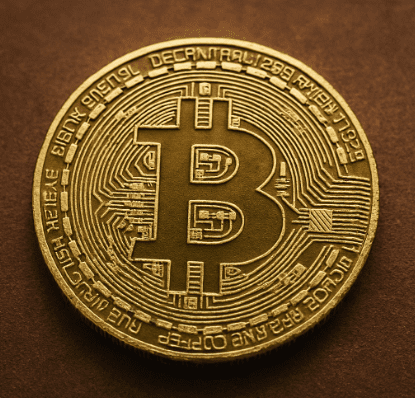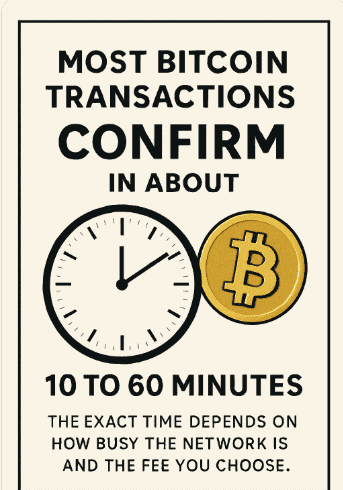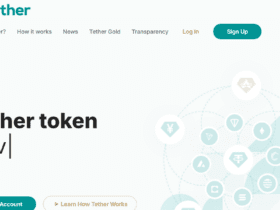This article is going to look at how long does it take to send Bitcoin and what impacts the speed of the transaction.
The transfer of Bitcoins is not always instant and can take different times to send and receive depending on other factors such as the network used, transaction costs, and the number of confirmations.
Understanding these elements can help faster, smoother transfers and help in avoiding delays in transfers from Bitcoin to wallets/exchange.
What Is Bitcoin?
Bitcoin, the world’s first decentralized currency, was created in 2009 and to this day, the name of its creator remains hidden: Satoshi Nakamoto.
Bitcoin operates through blockchain, a type of ledger capable of a distinct type of record kept for any transactions made which are public and kept safe, but are not controlled by any single authority.

Rather than a bank controlling a user’s transactions, Bitcoin empowers a large network of miners around the world to authenticate and verify transactions through solving complex computational problems.
21 million coins exist for Bitcoin, making it deflationary in nature. Bitcoin is frequently employed in making payments, investments, and saving for the future. It offers truly protective, reliable, and bank-less financial dealings around the world.
What Happens When You Send Bitcoin?
- Transaction Made: A user’s wallet will create such transaction and sign it as proof of funds wholly owned and controlled with the private key.
- Broadcast Transaction: Other users on the Bitcoin network through the nodes will see the transaction as it gets signed and then broadcast.
- Validation of Transaction: The Nodes will then confirm the various inputs present within the transaction and check to see if the transaction then becomes legitimate and make sure the inputs weren’t already in any transaction (double spend check).
- Transaction Sent to the Mempool: The transaction waits to be confirmed in mempool in unconfirmed order until it gets its validation and then the transaction gets placed in mempool.
- Miners Transaction Selection: The miners from the mempool pick the transactions they prefer based on the fee that gets attached to the transaction (fee paying transactions). They then start creating the blocks.
- First Block Assertion: Blockchain gets mined somewhere around every ten minutes. Once the transaction gets added the transaction gets its first confirmation.
- Confirmations Added: Every block that gets onto the blockchain will be counted as an added confirmation. Most transactions get accepted with 3 to 6 confirmations, after that the transaction is deemed final and irreversible.
How long Does It take To Send Bitcoin

Most Bitcoin transactions confirm in about 10 to 60 minutes. The exact time depends on how busy the network is and the fee you choose.
When you send Bitcoin with a low fee during a busy time, confirmation can lag. Expect the wait to stretch to several hours in some cases.
Specific wallets or exchanges require a higher number of confirmations to show your balance, adding extra time.
In unusual situations—such as a network jam or an uncomfortably low fee—a transaction can end up sitting for 24 hours or more.
Key Factors Affecting Bitcoin Transaction Times
The speed of a Bitcoin transfer can vary, and there are multiple factors that can either increase or decrease the speed of a Bitcoin transaction.
Network Congestion
When there are a lot of users cashing out Bitcoin at the same time, the mempool gets congested and suffers from a shortage of confirmed transactions. This can increase confirmation time to an hour or more.
Congestion spikes frequently before a significant event in the market or a new project launch. As noted by Glassnode, an increase in mempool and unconfirmed transactions will, in turn, decrease the speed of Bitcoin transaction confirmation.
2. Transaction Fees
Miners will always choose the transactions that come with the highest fees. If your fee is too low, your transaction is likely to be postponed and remain in limbo for multiple blocks. Make sure to keep up with the latest recommended fees, especially from mempool.space or your Bitget Wallet.
Fee Level
- High: 10 to 20 minutes
- Medium: 20 to 40 minutes
- Low: 1 hour and more
Number of Confirmations Required
Isn’t it perplexing how most platforms demand between 1 to 6 confirmations before actually crediting a deposit? Even when your transfer shows that the amount has been received after one confirmation, Bitget and other exchanges will not release the funds until more confirmations are added, which helps to offer more security against double spends.
Why Is My Bitcoin Transaction Taking So Long?
There’s a number of reasons bitcoin transactions can remain stuck in pending status:
Fee Too Low
If you set a fee below what the current market demands, your transaction can potentially be skipped by miners.
Network Congestion
During busy periods, the mempool can fill up with transactions, leading low-fee transactions to be delayed for hours.
Large or Complex Transactions
Transactions with a greater number of inputs or outputs can take longer to process.
Wallet Policies
While some wallets refuse to communicate transactions with fees considered too low, others publicly broadcast the transactions even though the miners may choose to ignore them.
How to Fix a Stuck Transaction
RBF (Replace-by-Fee): Lets you send a transaction and set a higher fee for faster confirmations.
CPFP (Child Pays for Parent): Pays a higher fee for a newly created transaction to encourage miners to confirm the original transaction.
Check Wallet Features: Different wallets have varying capabilities, so be sure to check what features your wallet has before sending large or sensitive transactions.
How Does a Bitcoin Transaction Work?
Suppose you would like to send a friend named Dave a birthday gift of 5 BTC. You do this by using your private key to sign a message that goes to the Bitcoin blockchain. This message contains three components as described below:
- There is the input which is the the starting point of the bitcoins you are spending and a proof of originating BTC has to exist.
- There is the Amount you would like to pass which is 5 BTC.
- There is the Output which is the Public key of Dave that has access to the BTC being sent.
All the above stated components are termed as messages and are sent out to the blockchain. This message has three elements which are received by the bitcoin blockchain and is of the utmost importance to the investor. This is where the investment journey starts.
How Miners Verify and Update Transactions
After your transaction is broadcast to the network, it is the miners’ job to confirm it. To prove that you own the 5 BTC and have the right to send them, miners need to complete very complicated mathematical puzzles.
When it is confirmed, the block is then stored and permanently inscribed onto the blockchain ledger. For your case, miners adjust Bitcoin’s records to reflect that your wallet has sent 5 BTC to Dave’s wallet.
How Long Does It Take to Send Bitcoin?
In most cases, a Bitcoin transaction gets confirmed in around 10 minutes and that’s because a new block gets added to the blockchain about that often. But the real wait can vary. It’s the mempool, hashrate, and fees that really determine how fast your coins move.
When the network is stretched, your payment sits in the mempool, and miners tend to pick the higher-fee jobs first. A good benchmark is the April 2021 spike, when the mempool got busy and fees climbed to about $59. Only the people willing to pay that extra bottom line got to skip the line.
Conclusion
In conclsuion The time it takes to send Bitcoin Bitcoin can take anywhere from 10 to 60 minutes to send depending on how busy the network is and how congested the transaction is as well as the transaction fees and the processing done on the platform.
Paying a higher fee and sending the transaction during off-peak periods speeds up the confirmation time, while paying lower fees or sending the transaction over a congested network will delay the transaction.
RBF and the Lightning Network are both capable of expediting the payment transfers making Bitcoin payments more instant and reliable.
FAQ
Usually 10–60 minutes, depending on fees, network congestion, and confirmations required.
Delays occur due to low fees, network congestion, or wallet/exchange processing times.
Typically 3–6 confirmations are considered secure for most transactions.
No, Bitcoin is not instant; times vary based on network and fee settings.













